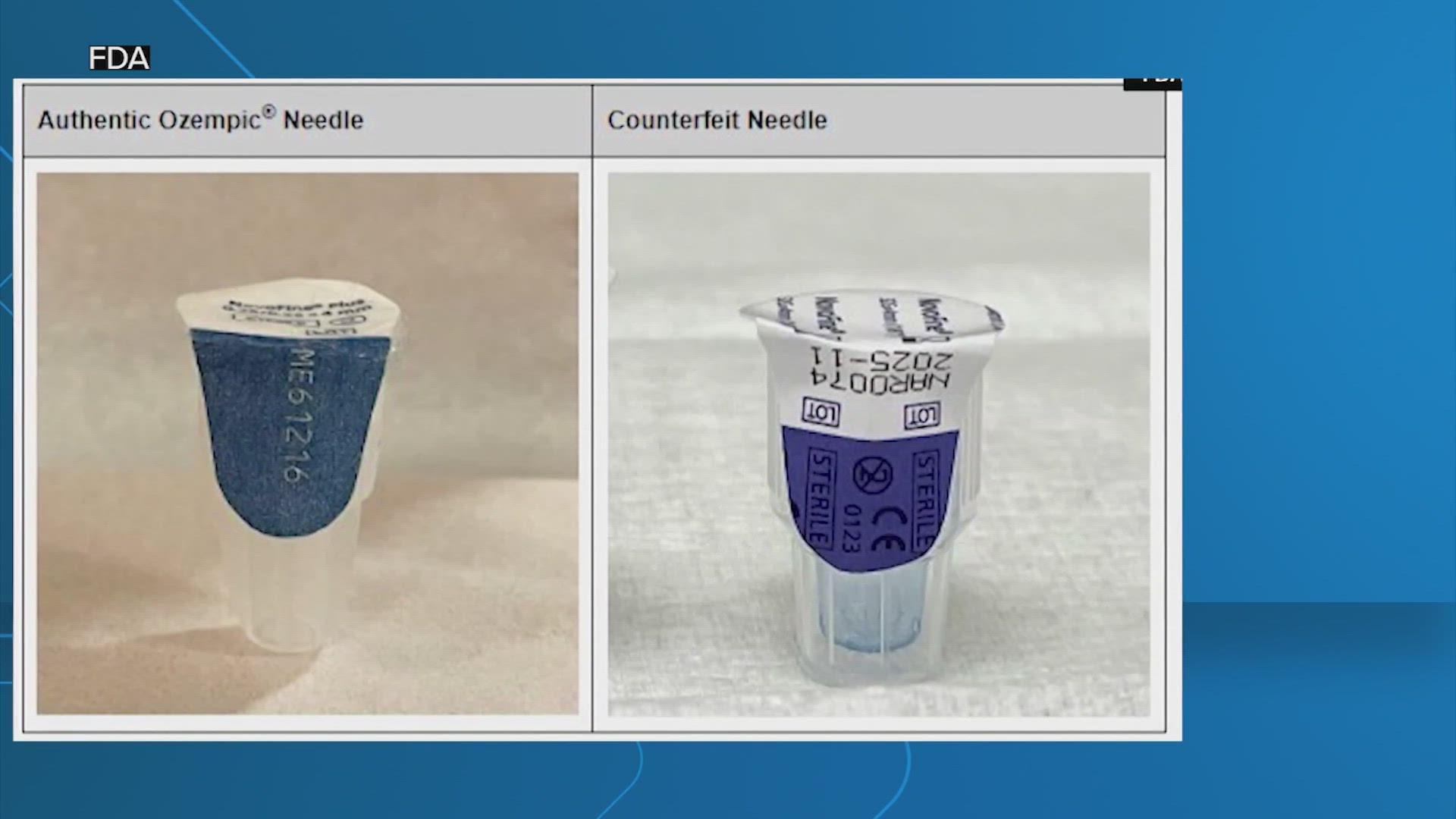WASHINGTON — The U.S. Food and Drug Administration said it has seized “thousands of units” of counterfeit Ozempic, the diabetes drug widely used for weight loss, that had been distributed through legitimate drug supply sources.
The FDA and the drug’s maker, Novo Nordisk, are testing the shots. They do not yet have information about the drugs' identity, quality or safety, according to a statement. Five illnesses have been linked to the fake shots, but none have been serious, the FDA said Thursday.
Some of the fake 1 milligram semaglutide shots may still be for sale, the FDA said. In addition to the drug itself, the needles, pen labels, carton and accompanying health care information are also counterfeit, the agency said.
It said the counterfeits were labeled with the lot number NAR0074 and serial number 430834149057.
FDA advised retail pharmacies to buy authentic Ozempic only through authorized distributors and for patients to get it only through state-licensed pharmacies.
Consumers can report suspect Ozempic packages by calling 800-332-1088 or by contacting a state complaint coordinator.
The news of fake Ozempic comes as legitimate doses are becoming harder to come by.
The FDA says Ozempic has been in shortage due to an increase in demand since August 2022. Currently, doses of 0.25 mg/0.5 mg are in short supply.
“The 1 mg and 2 mg doses of Ozempic are now available for patients with type 2 diabetes across the U.S.,” a Novo Nordisk spokesperson told VERIFY in an email. “However, we are currently experiencing intermittent supply disruptions on the Ozempic pen that delivers 0.25 mg and 0.5 mg doses – which is anticipated through mid-March – due to the combination of incredible demand coupled with overall global supply constraints.”
Although neither the FDA or the ASHP gives a reason for the demand increase, a blog post written by Jennifer Middleton, M.D., for the American Academy of Family Physicians (AAFP) links the shortage to a viral social media trend touting Ozempic and a similar drug’s apparent effectiveness for losing weight. The drugs first began to get attention on TikTok in early 2022, and have remained popular on social media into 2023.
___
The Associated Press Health and Science Department receives support from the Howard Hughes Medical Institute’s Science and Educational Media Group. The AP is solely responsible for all content.

